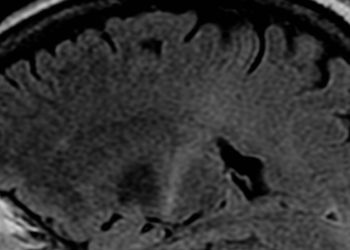Diets rich in omega fatty acids may reduce ALS (Lou Gehrig’s) risk
1. Increased ingestion of omega-3 polyunsaturated fatty acids from both vegetables and fish may lower the risk of developing amyotrophic lateral sclerosis (ALS).
2. Total ingestion of omega-6 polyunsaturated fatty acids was not associated with any change in risk of developing ALS.
Evidence Rating Level: 2 (Good)
Study Rundown: Long-chain polyunsaturated fatty acids (PUFAs) consumed in the diet are part of the normal composition of brain lipids. Previous work in mice has been equivocal regarding the role of dietary PUFA intake on neurologic health. Studies have both suggested potential neuroprotective effects of PUFAs in aging and ischemic injury, as well as possible acceleration of disease progression in models of ALS. The authors of this study sought to elucidate what role, if any, ingestion of PUFAs might have on the risk of developing ALS in humans.
The study concludes that intake of omega-3 PUFAs, both from vegetable and marine sources (i.e. fish) was associated with a lower risk of developing ALS. As no information was recorded regarding family or social history, a description of how dietary PUFA interacts with other ALS risk factors is unavailable. This study pooled data from a large and diverse cohort of participants, lending credence to the results. One potential limit of the study is that cases of ALS were reported by a search of death certificates, as incidence of ALS was not directly recorded. However, further investigation is warranted before increased intake of PUFAs can be recommended as a protective factor in development of ALS.
Click to read the study, published today in JAMA Neurology
Relevant Reading: The Omega-3 Fatty Acid Eicosapentaenoic Acid Accelerates Disease Progression in a Model of Amyotrophic Lateral Sclerosis
In-Depth [prospective cohort]: This study used data from the Health Professionals Follow-up Study (HPFS), the Nurses’ Health Study (NHS), the Cancer Prevention Study II Nutrition Cohort (CPS-II Nutrition), the Multiethnic Cohort Study (MEC), and the National Institutes of Health–AARP Diet and Health Study (NIH-AARP). For several of these studies, ALS incidence was estimated through a search of death certificates. Information regarding the participants’ diets was recorded prospectively from each study in the form of a scale. Patients rated the approximate frequency of eating certain foods, and this was multiplied by the approximate size of the portions they consumed.
Participants were categorized into cohort-specific quintiles of intake of energy-adjusted dietary variables. Potential confounders were accounted for including BMI, physical activity, education level, smoking status, vitamin E intake, and total major carotenoid intake. They also looked for effect modification by age, gender, BMI, and vitamin E intake, which was not demonstrated. 995 patients with ALS were documented across all studies. Total omega-3 PUFA intake was associated with a 34% decreased risk of developing ALS with the multivariate pooled RR comparing the highest and lowest quintile of 0.66 (95% CI, 0.53-0.81;P < .001). Total omega-6 PUFA intake had no association with the risk of developing ALS.
Image: PD
©2012-2014 2minutemedicine.com. All rights reserved. No works may be reproduced without expressed written consent from 2minutemedicine.com. Disclaimer: We present factual information directly from peer reviewed medical journals. No post should be construed as medical advice and is not intended as such by the authors, editors, staff or by 2minutemedicine.com. PLEASE SEE A HEALTHCARE PROVIDER IN YOUR AREA IF YOU SEEK MEDICAL ADVICE OF ANY SORT.




![No benefit with hydroxychloroquine (Plaquenil) over placebo in Sjogren’s Syndrome [JOQUER Trial]](https://www.2minutemedicine.com/wp-content/uploads/2014/07/Sjogren_syndrome_2-75x75.jpg)

